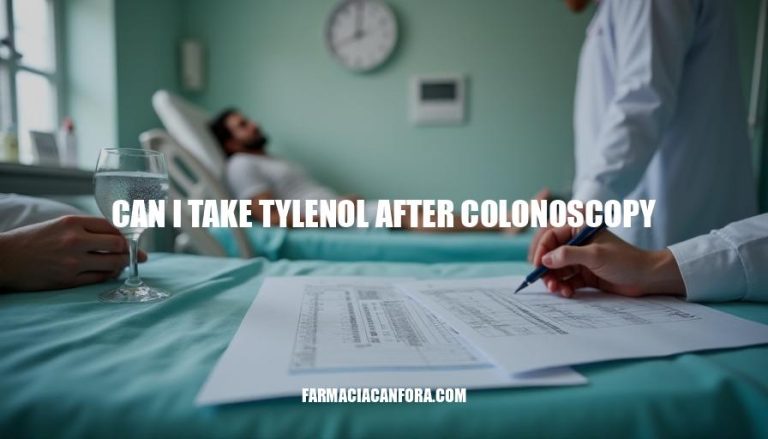


You need to take good care of yourself after a colonoscopy to recover smoothly and avoid any problems. One thing people often wonder about is whether it’s okay to take Tylenol for pain relief. They’re worried about taking the right medication without causing any issues with their body healing or interacting with other meds.
Knowing what medications are safe to use after a procedure is key to managing your pain effectively during recovery.
Tylenol (acetaminophen) is generally considered safe for pain relief after a colonoscopy, provided it is used within recommended dosage limits and under medical guidance. Unlike NSAIDs, Tylenol does not cause stomach irritation, making it a preferred option for post-procedure discomfort. However, patients should be mindful of potential side effects, including nausea, vomiting, and, in rare cases, liver toxicity if taken in excessive amounts.
Interactions with anesthesia should be considered, as certain medications can interfere with anesthetic agents.
While Tylenol is not commonly associated with significant interactions, patients recovering from sedation should consult their healthcare provider to ensure safe use. Additionally, those with liver conditions or who consume alcohol regularly should exercise caution, as acetaminophen can contribute to liver damage.
Warnings for post-procedure use include adhering to the maximum daily dosage of 4,000 mg to prevent liver complications. Patients should also monitor for allergic reactions, such as skin rashes or unusual fatigue, and seek medical attention if symptoms arise.
Hydration and rest are recommended alongside medication to support recovery. Consulting a doctor before taking Tylenol ensures personalized guidance based on individual health conditions and medication history.
1pharmacyknowhow.com2www.drugs.com3www.webmd.com4www.mdanderson.org5utswmed.org
You can take Tylenol (acetaminophen) after a colonoscopy, but it’s essential to use it within recommended dosage limits and under medical guidance.
It’s generally considered safe for pain relief due to its non-stomach-irritating properties compared to NSAIDs. However, be aware of potential side effects like nausea, vomiting, and rare liver toxicity from excessive amounts.
To support recovery, prioritize hydration and rest alongside medication. Your doctor can provide personalized guidance based on individual health conditions and medication history.
If you’re unsure about using Tylenol after a colonoscopy, consult your healthcare provider for advice. They will help you manage discomfort safely and effectively during the recovery process.